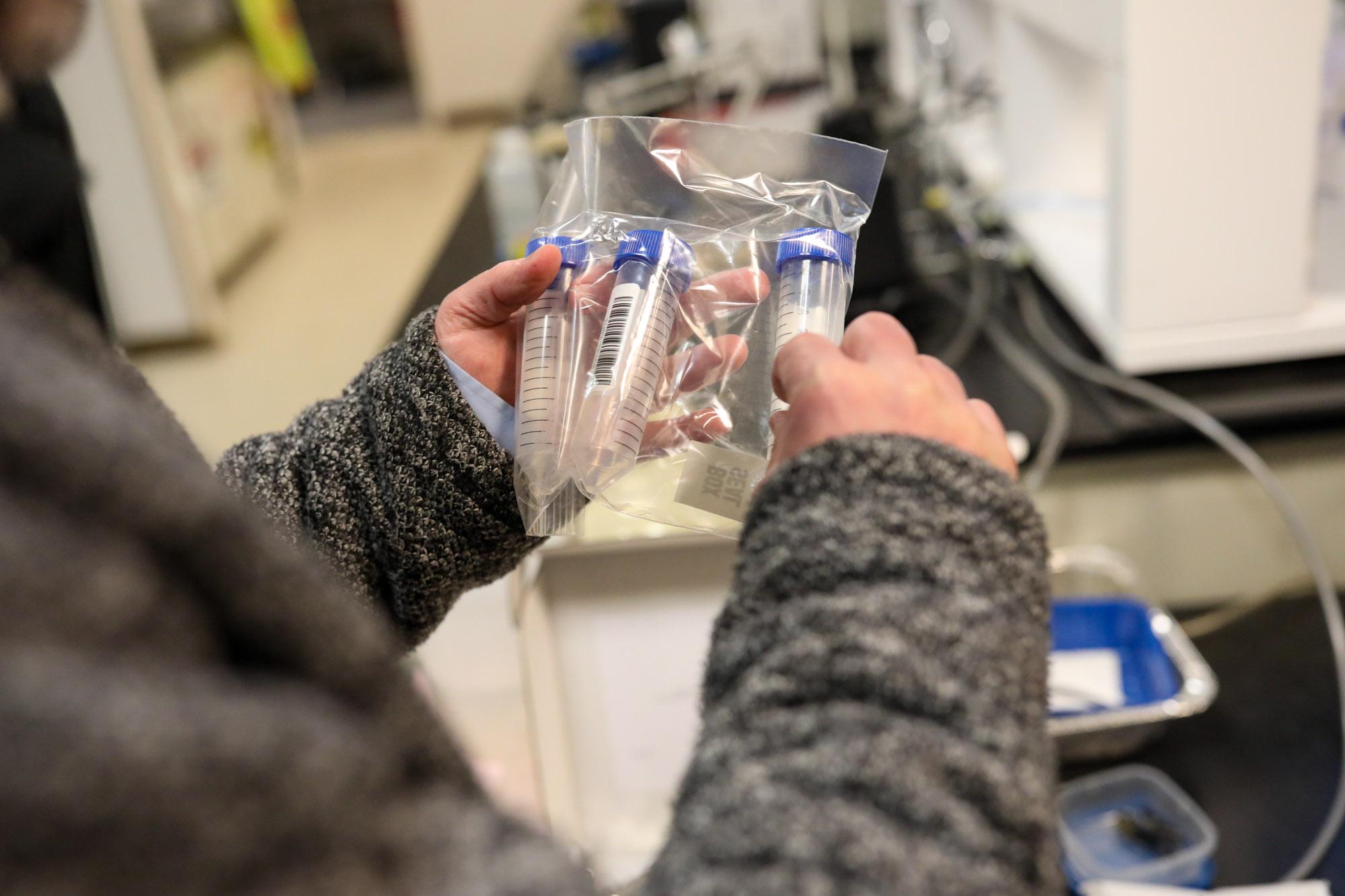
Denver's health department says it has detected a highly contagious coronavirus strain in both wastewater and human samples but that it’s not currently a major threat.
The strain is known as the COVID-19 BA.2 variant — some call it “stealth omicron.” The Denver Department of Public Health & Environment (DDPHE), said for now, it's not concerned about a surge in cases as seen with previous variants, based on current data and projections from federal and state health agencies.
The agency said in a news release Friday that there may be increases in the percentage of cases from the variant, but “DDPHE anticipates low transmission.” That's because of both increased vaccination rates and natural immunity from recent infections of the omicron variant, which infected many Coloradans in this winter's big wave.
The news comes as the strain emerged elsewhere around the globe and is now popping up in the U.S.
In South Africa and other nations, the BA.2 subvariant outcompeted the original version; in Denmark it caused a second surge of omicron.
Researchers, like epidemiologist and clinical professor May Chu from the Colorado School of Public Health, are watching closely to see what characteristics each new variant has. They will ask, and look to see, is it more transmissible, does it make people more sick, how protective are vaccines and prior infection?
“We cannot let our finger off the pulse,” Chu said. “Every variant has its own characteristics and just because one variant may cause less severe disease, there is no guarantee that the next one will be even milder.”
According to the state’s COVID-19 data dashboard, Colorado’s overall metrics continue to remain low. The state’s positivity rate is below the worrisome 5 percent threshold, at 2.6 percent, though that figure doesn’t not include most at-home tests, which don’t get reported to the state.
Hospitalizations for confirmed cases were at 151 Friday, well below the peaks of surges caused by a series of earlier variants in Colorado.
Wastewater surveillance is emerging as a go-to tool for Colorado’s health department, which now has more than three dozen sampling sites, mostly at treatment plants statewide. Likewise, the CDC hopes testing poop nationally and compiling the data through the National Wastewater Surveillance System could help flag future surges and identify hot spots.
But for now much of the nation’s population is not part of that network, so data is spotty.
“The whole country is not there,” Chu said, “The United States is probably a little late to the game and needs to really up its game on monitoring the virus variants.”
Denver’s announcement follows a big surge in transmission, cases, hospitalizations and deaths caused by the omicron variant, which itself had followed similar wreckage brought by the delta variant.
The delta wave hit Colorado hard last fall, resulting in more than 200 deaths each week for seven straight weeks.
Then when the super-transmissible omicron strain arrived, rising and falling fast, its peak was as deadly as the delta wave.
Transmission spiked to record levels in Colorado and many residents got sick. Around 2 million Coloradans weren’t vaccinated, which research shows is highly effective at preventing severe disease. Hospitalizations soared above 1,600, within 200 of the all-time pandemic high.
The state’s omicron surge didn’t claim lives in the same startling numbers as the most deadly surge at the end of 2020 — when 465 people died the last week of November of that year — the omicron outbreak killed Coloradans in numbers that rivaled the delta wave.









